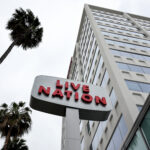Performers can’t light a single candle on the Odeum Theater’s stage. The floors are concrete, the curtains flame retardant and an alarm system connects to the East Greenwich, R.I. Fire Department.
“The most volatile appliance we have in the theater is the coffee maker,” joked Frank Prosnitz, president of the nonprofit Odeum Corp.
That’s not enough to satisfy Rhode Island’s stringent fire code, a set of safety rules adopted after a nightclub fire in West Warwick killed 100 people in 2003. Fire officials decided last month that the Odeum must install a sprinkler system at an estimated cost of $200,000 or reduce its capacity by almost half. Prosnitz said the resulting drop in ticket sales could close a community enterprise.
Spurred by the nation’s fourth-deadliest nightclub blaze, Rhode Island lawmakers adopted phonebook-sized bills in 2003 during a frenzy to tighten fire codes. Now a state lawmaker and several business owners wonder if they went too far.
Rep. Joseph Trillo, R-Warwick, has introduced a bill repealing that new code, except for the provisions governing nightclubs. He’s not getting much support from Democratic legislative leaders, but safety experts describe the bill as a symptom of how the resolve to enforce fire rules can wane in the months and years after a tragedy.
Those on both sides agree that in the end, many of these decisions boil down to a cost-benefit analysis.
Kenneth Kuntz, who helped investigate The Station nightclub blaze for the National Institute of Standards and Technology, said most people support fire safety laws — until they have to pay.
“This is a capitalist-driven society,” he said, “money talks.”
Rhode Island’s fire code is unusual because it largely prevents fire authorities from exempting large, existing buildings from installing fire sprinklers that can cost thousands of dollars. Many small business simply can’t afford the cost, said Trillo, who owns an alarm business that sells fire and burglar alarms.
“The only solution to the problem is to stop the hemorrhaging, to pull the whole code,” he said. “It’s overkill.”
The political will to enact that code came easy after the deadly blaze at The Station nightclub on Feb. 20, 2003, a tragedy that personally touched many in so small a state.
A tour manager for the heavy metal band Great White shot off pyrotechnics inside a cramped bar, which ignited flammable soundproofing foam lining the walls. The flames spread almost immediately. Within 90 seconds, toxic black smoke suffocated most of the 100 people who died, including dozens caught in a stampede by the front door.
Later, a report by the federal government concluded that sprinklers could have prevented the carnage, even though they weren’t required at the club.
“We know it’s expensive,” said state Fire Marshal George Farrell, “but right now there are more fire marshals who are better trained than in the history of Rhode Island.”
Installing sprinklers is easier when constructing new buildings because the cost can be rolled into long-term mortgages, Kuntz said. But making those improvements in a mom-and-pop shop could mean upgrading water pipes, installing heaters and water tanks and other work.
“Suffering a cost like that could well put them out of business,” Kuntz said. “If the Rhode Island nightclub had been put out of business by the cost of such an ordinance, there would be 100 people alive today who aren’t.”
But Trillo said the state didn’t need new laws to prevent the nightclub from burning — it just needed to enforce the old ones.
West Warwick should have inspected the club far more closely when it changed ownership and uses over the years, he said. A fire inspector who visited the club on multiple occasions said he never noticed the flammable soundproofing foam, which was as illegal then as now.
Daniel Biechele, the band’s tour manager, pleaded guilty last year to involuntary manslaughter. As part of his plea, Biechele admitted he never obtained the necessary permits before igniting the pyrotechnics.
Fire safety officials argue that scrapping the new code is unnecessary since the Fire Safety Code Board of Appeal and Review can grant leniency to individual businesses — even entire industries.
Central Falls Fire Chief Rene Coutu, who chairs the board, said it has exempted some funeral parlors, churches and dining facilities from adding sprinklers in return for other safety concessions.
Although the improvements cost money, Coutu credits them for saving lives.
Last month, a fire alarm system required under the 2003 code alerted Central Falls firefighters to a blaze just as smoke filled a stairwell in an apartment building, trapping two elderly women who lived upstairs.
Firefighters arrived within minutes and carried the women to safety. Coutu attributes their survival to the alarm’s early warning.
“We addressed every type of occupancy in the state” in the new code, Coutu said. “We don’t need to do just nightclubs and then have someone die in apartment houses, and then deal with apartment houses.”
Was this article valuable?
Here are more articles you may enjoy.

 Claims Handling Breakdowns From LA Wildfires One Year on
Claims Handling Breakdowns From LA Wildfires One Year on  Insurance Clubs to Halt Ship War-Risk Cover in Persian Gulf
Insurance Clubs to Halt Ship War-Risk Cover in Persian Gulf  Red Flags Adjusters Should Look for in Truck Accident Claims Investigations
Red Flags Adjusters Should Look for in Truck Accident Claims Investigations  Live Nation’s Settlement Efforts Stalled Ahead of DOJ Trial
Live Nation’s Settlement Efforts Stalled Ahead of DOJ Trial 